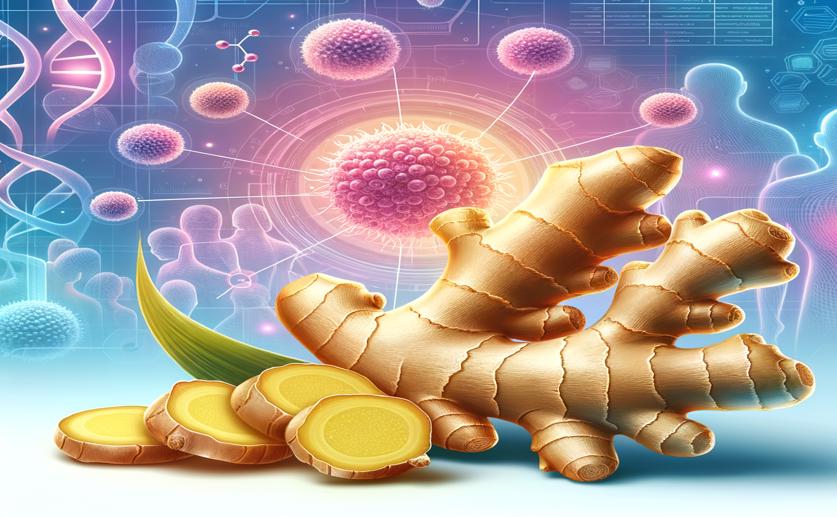
Exploring Ginger's Cancer-Fighting Compounds in Colon Cancer Cells
Greg Howard
17th August, 2024

Image Source: Natural Science News, 2024
Key Findings
- Researchers at The University of Jordan found that ginger extracts have strong anticancer effects on colorectal cancer cells
- Ginger extracts, especially those with high quercetin content, significantly inhibited the growth of HT-29 colorectal cancer cells
- The study supports ginger's potential as a natural treatment for colorectal cancer due to its rich flavonoid and phenolic content
References
Main Study
1) Assessment of the anticancer potential of certain phenolic and flavonoid components in ginger capsules using colorectal cancer cell lines coupled with quantitative analysis.
Published 17th August, 2024
https://doi.org/10.1002/bmc.5993
Related Studies
2) The Antitumor Activity of Ginger against Colorectal Cancer Induced by Dimethylhydrazine in Rats.
3) Phytochemical profile and antioxidant activity of various solvent extracts of two varieties of ginger and garlic.
4) Chemical Composition, Cytotoxic, Apoptotic and Antioxidant Activities of Main Commercial Essential Oils in Palestine: A Comparative Study.



 12th August, 2024 | Jim Crocker
12th August, 2024 | Jim Crocker